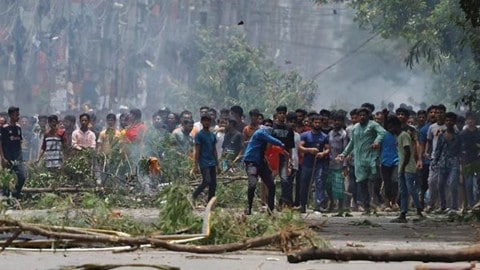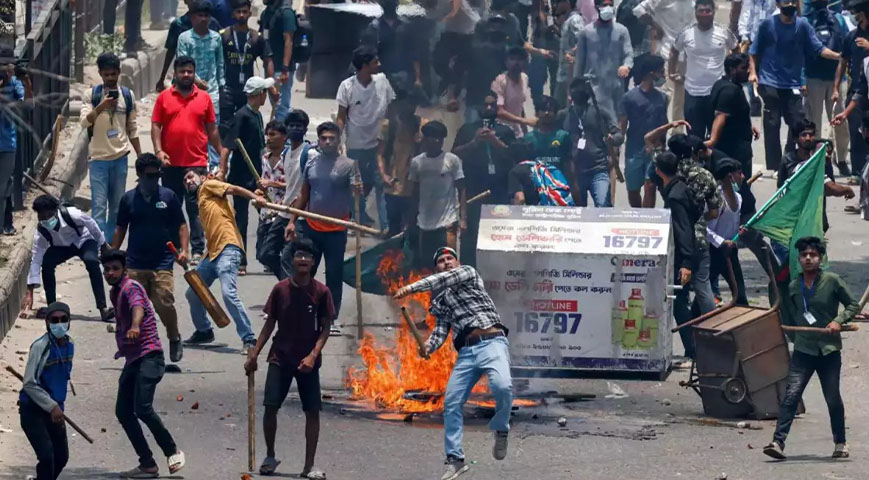Bangladeshi students called for new street protests after Prime Minister Sheikh Hasina's government ignored their request to release detained leaders and apologize for those killed in recent unrest.
The student-led demonstrations against civil service job quotas sparked deadly violence, resulting in at least 205 fatalities, including police officers, based on police and hospital data.

The clashes are among the worst during Hasina's 15-year rule, prompting the government to deploy troops, impose a curfew, and shut down the internet nationwide to restore order. Thousands, including leaders from Students Against Discrimination, behind the initial protests, have been detained.
Did you read this?
Abdul Kader, a coordinator for the group, criticized the government's insensitivity and called for nationwide protests, urging citizens to support their demands. The group had warned of renewed demonstrations if their leaders were not released by Sunday evening. Their demands include a public apology from Hasina, the dismissal of certain ministers, and the reopening of educational institutions closed amid the unrest.
According to Prothom Alo, a leading Bangladeshi newspaper, around 9,000 people have been arrested since the unrest began. Despite a continued military presence and curfew, the government has gradually relaxed restrictions, including restoring mobile internet service after an 11-day blackout, signaling confidence in controlling the situation.

Protests erupted over the reinstatement of a quota system that reserves over half of all government jobs for specific groups, causing outrage among graduates facing a severe jobs crisis, with 18 million young Bangladeshis unemployed, according to government data. Critics argue the quota system is exploited to fill public positions with ruling party loyalists. Although the Supreme Court reduced the number of reserved jobs, it did not fully meet protesters' demands to eliminate the quotas.
Hasina, in power since 2009, secured her fourth consecutive term in January's election, a vote criticized for lacking genuine opposition. Rights groups accuse her government of using state institutions to solidify power and suppress dissent, including extrajudicial killings of opposition activists.









